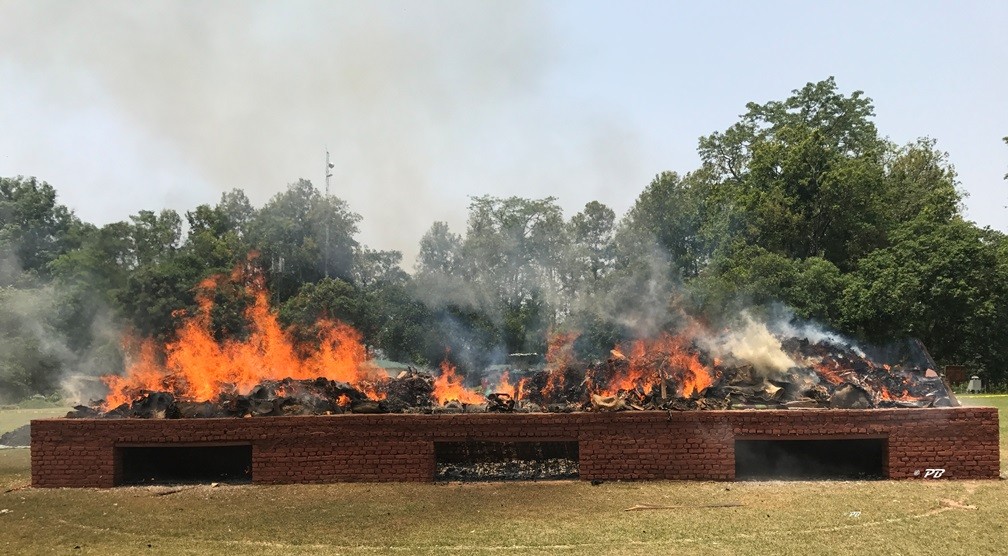SAWEN supports in wildlife stockpiles management in Nepal

Government of Nepal successfully managed the wildlife stockpiles stored for more than 20 years following the standard procedures. Initially, inventory of the stockpiles was carried out with technical support of including the SAWEN Secretariat on 20-30 June 2016 in Kasara and Tikauli, Chitwan. Future reference and laboratory samples were retrieved from the wildlife stockpiles. Other stockpiles were recommended for destruction. Recently, the wildlife stockpiles, subject to the disposition, were destructed in collaboration with various stakeholders on 22 May 2017 coinciding with the International Biodiversity Day in Kasara, Chitwan. The SAWEN Secretariat has provided the technical support in managing the wildlife stockpiles from the inventory to the disposition.
More than 4,000 wildlife parts and products of over 48 species were burned amid a function organized in the premise of Chitwan National Park, a World Heritage Site, Kasara, Chitwan. Burned materials included rhino horns; tiger, leopard, snow leopard, red panda and python skins; tiger claws; pangolin scales; musk pods; bear gall bladders; big cats bones; elephant tail hairs; tortoise carapaces and sea horses etc. Elephant tusks of more than 1000kg, however, are yet to be destroyed as it requires around 900 degrees Celsius of temperature to burn.
The event portrays the country’s intolerance against poaching and illegal wildlife trade. SAWEN congratulates the Government of Nepal for its firm commitment in robust wildlife law enforcement and combating wildlife crime.


